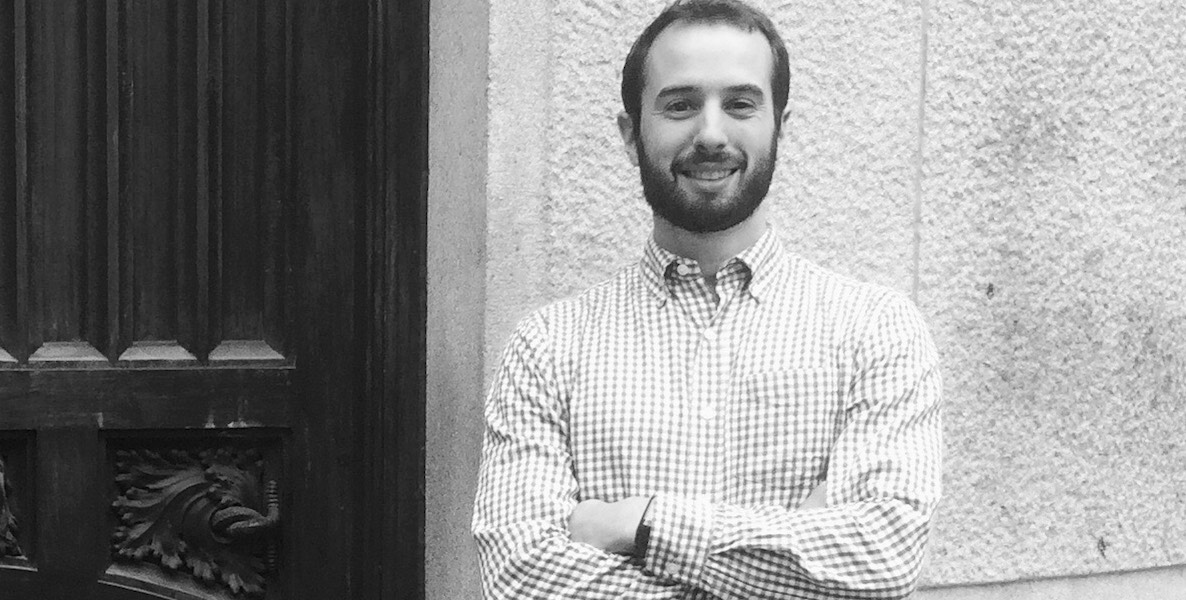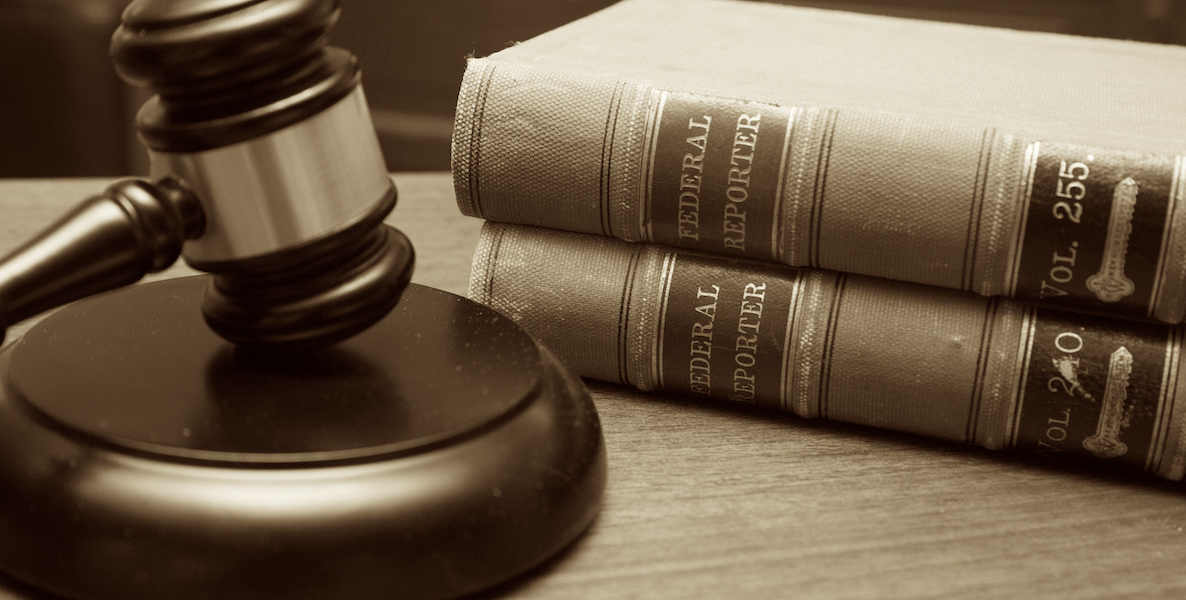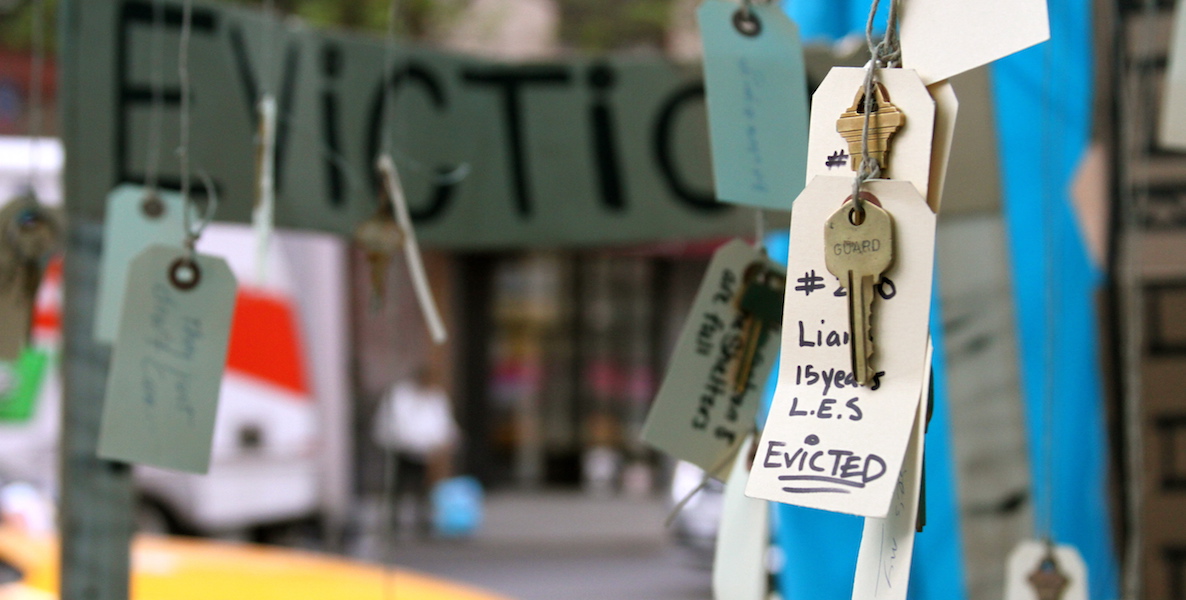A few years back I lived in an apartment that had no heat my first winter; it flooded on several occasions (toilet and shower and sink); I’m pretty damned sure that there was an onsy-offsy gas leak; and when I had bedbugs, it took my landlord two months to respond to my pitiful pleas for help and mercy. My landlord’s true nature was hidden behind an LLC, and contacting them proved nearly impossible. The scary thing was that I felt that I had little recourse; I had no idea how to file a suit against my shadow-landlord. I’d have given my left foot for legal help, but I thought it was too expensive and too complicated.
It’s a situation shared by thousands of tenants facing eviction in Philadelphia’s Landlord-Tenant court each year. According to a study by The Reinvestment Fund, the average rate of renters facing the threat of eviction in Philadelphia was never below 7 percent from 2014 to 2015. In parts of Point Breeze, Germantown and North Central—where the mostly black poor or middle class residents don’t have easy access to legal representation—the rate of eviction was over 15 percent. That means thousands of poor residents forced to leave their homes—and find new ones they can afford—every year.
That’s not so easy. According to a Harvard study, the median rent in Philadelphia increased by about 2 percent in the past year, following a pattern of 2- to 5-percent rent increases every year. And as Plan Philly has reported, low-cost housing is disappearing all over town. This contributes to an eviction tornado in Philadelphia, the poorest big city in the country, with the highest deep poverty level. It’s a little-talked-about problem facing most big cities, but few have a plan in place to really address it.
According to Community Legal Services, 3 to 5 percent of Philadelphian tenants facing eviction attain legal representation, versus 85 percent of landlords, making Landlord-Tenant court—where most housing and eviction cases end up—a rather one-sided affair.
In New York, though, Mayor Bill de Blasio ran for office in 2013 on a vow to curb the housing crisis in his city, and his policies have affected at least one major metric: evictions. The real estate and housing situation in Manhattan is among the worst in the country. In 2015, median-income New Yorkers spent 60 percent of their income on their lodging; in 2016, it was 65 percent. As wages stagnate nationally, rental rates are increasing annually, and New York may be the ultimate case study: From 2011 to 2014, rent in the Big Apple, including utilities, grew an average of 4.3 percent, far surpassing inflation rates. This has led to an eviction crisis, with more than 28,000 New Yorkers being evicted from their homes in 2011.
De Blasio’s administration has worked to change that by expanding New York’s Office of Civil Justice, which hooks NYC tenants up with legal representation. As a result, a quarter of tenants had legal representation in 2015, as opposed to 1 percent in 2013. And evictions in New York City have fallen by at least 24 percent, as a result. That’s an amazing change over the course of roughly two fiscal years, no question.
Subsidized legal representation for any low-income individual who seeks it would have a similar effect in Philadelphia. Rasheedah Phillips, an attorney from Philadelphia’s Community Legal Services, says that while New York City’s new model for tenant representation is admirable and worth emulating, it may be difficult to duplicate. According to Phillips, it’s more or less the matter of scale that could hold Philly back.
“I think New York’s system could work in Philadelphia, but we have to be very cautious,” says Phillips. “It’s not a ‘one-size-fits-all.’ I mean, New York has money. It’s a much bigger state, it’s a much bigger city with a higher cost of living. It’s a different landscape, and they’ve had tenant organizers and other things to protect tenants in place. There are measures to protect tenants out there already.”

Get More From Every Story
We include boxes in nearly every story to help you take action. Click the boxes below to see how you can make Philly better.
Phillips is right, obviously. Philly doesn’t have the same kind of cash. But she agrees that more city money has to be pumped into the tenant representation system, if not to provide tenants with attorneys, then at least to make it clear to tenants that there are options, like pro-bono lawyers and free legal advice. The situation, she says, is too dire to avoid doing so: According to Community Legal Services, 3 to 5 percent of Philadelphian tenants facing eviction attain legal representation versus 85 percent of landlords, making Landlord-Tenant court—where most housing and eviction cases end up—a rather one-sided affair.
There’s nothing easy about going to Landlord-Tenant court for the tenant, and the rules seem to be tipped toward the landlords. If a tenant does not vacate the property within 10 days of the landlord’s first notice to vacate, the landlord has the right to file a suit in Landlord-Tenant court. The case starts in mediation, but if the landlord and the tenant can’t come to an agreement to settle the dispute, the case is put before a judge. The court cannot order a landlord to make repairs. (Tenants who file a complaint with the Department of Licenses and Inspections can trigger an inspection, which may lead to L&I ordering landlords to make repairs.) And if the tenant misses the set court date—which happens more frequently without lawyers to help navigate the system—the landlord automatically wins. In short, it’s the kind of fast, aggressive process that you’d want to be lawyered up for, to help you avoid filing pitfalls, perhaps post an appeal, and maybe even win.
A quarter of tenants had legal representation in 2015, as opposed to 1 percent in 2013. And evictions in New York City have fallen by at least 24 percent, as a result. That’s an amazing change over the course of roughly two fiscal years.
“If we can put the same kind of money that New York has into representing tenants, it will come down the line. Maybe five or ten years from now, or something like that,” Phillips says. “But before that, we need to take baby steps, and work on really creative measures to help us get there.” Phillips thinks that while the city may not be predisposed to investing in more representation for tenants right now, there could be more of a market down the line if, and only if, groups like CLS make serious, coordinated efforts to show that increased tenant services are a real boon to low income Philadelphians.
Right now, creative measures to provide Philly tenants with legal representation come from volunteer lawyers in Philly. Community Legal Services, for instance, has a monthly meeting between Philly-area tenant lawyers and landlord lawyers, in which the two sides work out methods for more fairly representing their disparate clientele. CLS is also helping run a Landlord/Tenant Help Center with a collection of similarly civil-minded law groups including Philadelphia Legal Assistance and attorneys from Dechert LLP, which provides free legal advice to those in Landlord-Tenant court.
“Tenants can literally go right upstairs and get some advice, maybe some help with filing something,” says Phillips. “So we’re playing around with things to see if they increase access to justice.”
CLS’s work is surely a start, laying the groundwork for what is hopefully a revolution in local tenant representation.
Header photo by Linh Do via Flickr







